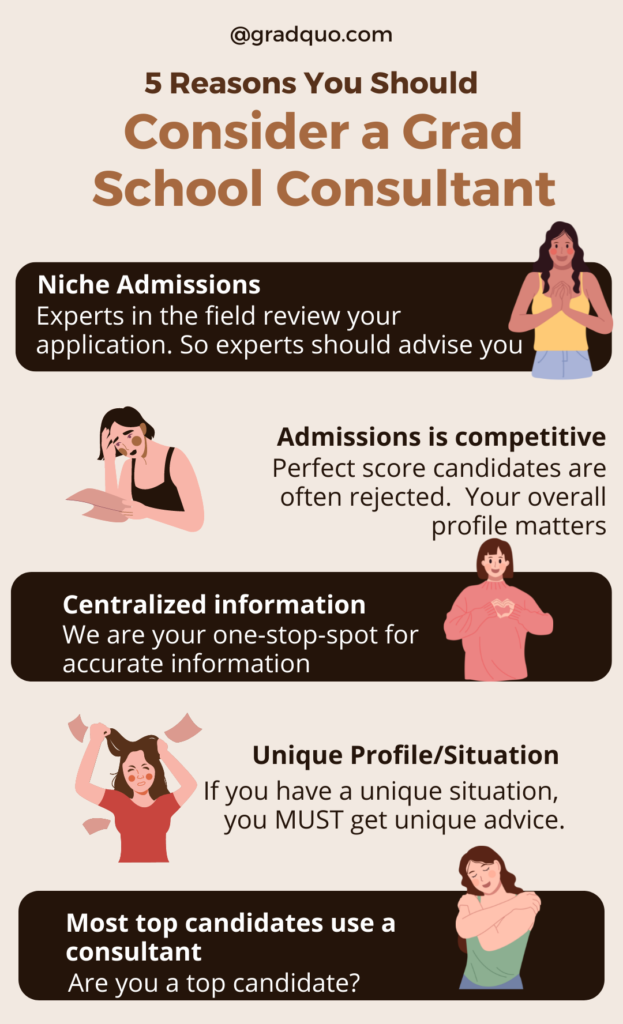Schedule Free Consultation
Join Our Free Open House Session!
Meet with our consultants, tutors, and admin team to ask questions and learn more about GradQuo. We’ll cover topics like application strategies, scholarship opportunities, ideal timelines, and the pathway to your success. Registration is required, and sessions are typically held on the third or last Friday of each month. Don’t miss out—sign up today!

Schedule a Free Initial Consultation.


Why Consider a Graduate School Admission Consultant?
Candidates who fall in one of the following groups should strongly consider a graduate school consultant:
Most applicants who aspire to enroll at one of the world’s most popular schools for any field, such as the Haas School of Business, Harvard /Kennedy Business School, the Stanford Graduate School of Business and the University of Pennsylvania’s Wharton School, will likely need consultants’ help to win admission. Even if applicants have five years of experience with one of these schools’ prestigious “feeder” employers like McKinsey, a 3.9 GPA, and a 750 score on the GMAT, competition for spots at these schools is still too intense to face without coaching by professionals. About 94% of admits to Harvard Business School, for example, used a consultant!
Candidates applying to online MBA programs offered by top business schools. These schools include Carnegie Mellon University’s Tepper School of Business, the University of North Carolina’s Kenan-Flagler Business School, the Kelley School of Business at Indiana University, and the new online MBA program at the University of Michigan’s Ross School of Business.
Candidates for whom a gap exists between their aspirations and their profile. This includes:
Anyone applying to a top-12 school with less than a 3.5 GPA, or less than a 700 GMAT score, or work experience without prestige or feeder employers.
Anyone applying to a top-50 full-time, on-campus program with a GPA below 3.2, or a GMAT score below about 630, or work experience issues (including over ten years of work experience), or whose age falls significantly below or above the typical range for full-time, on-campus MBA students.
Candidates who are applying to a top-25 school who have communication challenges that may affect their performance on application essays or during interviews.
International candidates who are non-native English speakers, and who are applying to a top-50 business school in the United States.
Candidates working at companies which don’t offer business school application counseling to employees and don’t employ many MBAs that are willing to provide free advice.
Well-qualified applicants, especially from underrepresented groups, likely to win scholarships that may defray some or all of the costs of admission consulting.

